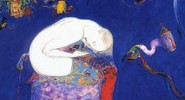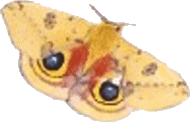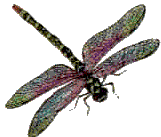Sunday, February 09, 2003
POETS AGAINST THE WAR
I just finished posting one of the poems from my book at the Poets Against the War website. The particular poem I picked is called "Hiroshima Maiden," and it's a dramatic monologue written in the voice of one of the twenty-five young Japanese women severely disfigured as a result of the dropping of the atomic bombs during the second world war. These women were subsequently sent to the United States for what was, at that time, highly experimental and dangerous reconstructive surgery, and they become known as the Hiroshima Maidens. (It was thought that U.S. doctors and scientists, in addition to altruistic motivations, were eager to have the opportunity of studying the catastrophic effects of the atomic bomb firsthand.) Part of the horrible irony of the circumstances was that upon returning to Japan, the Hiroshima Maidens were shunned and ostracized . . . the shame and horror of Hiroshima and Nagasaki had become a national shame and horror, and, furthermore, the Hiroshima Maidens were viewed as having committed an act of betrayal through undergoing their plastic surgeries and adopting "Americanized" airs, according to the other hibakusha, or survivors of the atomic bomb. Many poets have written new poems of protest to post at Poets Against the War, but I find that there is nothing about the events which have been inexorably taking place since September 11 that I can even attempt to fashion into art. And it makes me ache inside to think that histories of Racism, Orientalism, Colonialism, Imperalism, and War continue to cycle around again and again, even with full knowledge of the potential for irreparable damage and destruction. And so maybe this poem can function as a reminder, if nothing else.
HIROSHIMA MAIDEN
I.
My mother recognized
my feet and claimed me
at the hospital,
my face hot wax poured
into a Noh mask.
She used to chide me
for my pride
because I always
carried a parasol,
wasted money
on watermelons
to scrub my skin.
She's frightened
to look at me now
because I might see
myself in her eyes.
II.
Everybody stared
at Mrs. Roosevelt's
tea party, and I felt
a flash of shame
each time a reporter
snapped another picture.
After plastic surgery
at the American hospital
we looked like so many
rows of Q-Tips.
It was a relief not
to see each other's
faces, and our hands
began to take on
their former girlish
gestures. We almost
felt pretty again,
until one girl died
on their table. She found
the opening where they
were sewing on a new
mouth, and flew away.
III.
The other hibakusha
say I put on airs
since I came back.;
I learned how to draw
on eyebrows, make
my skin all the same
color. They gave me
a wig made of real hair
that I brush down
a certain way to hide
my missing ear.
Mother tells me
not to listen,
they're only jealous,
and maybe now
I'll frind a husband.
Maybe an ugly man,
though kind. But
I sour inside like
an unripe persimmon,
and every day become
stranger to myself
behind this other
person's face -- a lie,
richly embroidered
by unfamiliar hands.
Please consider visiting the resources available at the Poets Against the War website, as well as taking a moment to read and sign Not In Our Name: A Statement Against War and Repression, or sending free faxes to Congress and the President via the True Majority website. Articles on U.S. Poet Laureate Billy Collins' Public Opposition of the War with Iraq as well as Bushes Get a Taste of Poetic Justice (both articles located via wanna write?) are also definitely worth a look.
I just finished posting one of the poems from my book at the Poets Against the War website. The particular poem I picked is called "Hiroshima Maiden," and it's a dramatic monologue written in the voice of one of the twenty-five young Japanese women severely disfigured as a result of the dropping of the atomic bombs during the second world war. These women were subsequently sent to the United States for what was, at that time, highly experimental and dangerous reconstructive surgery, and they become known as the Hiroshima Maidens. (It was thought that U.S. doctors and scientists, in addition to altruistic motivations, were eager to have the opportunity of studying the catastrophic effects of the atomic bomb firsthand.) Part of the horrible irony of the circumstances was that upon returning to Japan, the Hiroshima Maidens were shunned and ostracized . . . the shame and horror of Hiroshima and Nagasaki had become a national shame and horror, and, furthermore, the Hiroshima Maidens were viewed as having committed an act of betrayal through undergoing their plastic surgeries and adopting "Americanized" airs, according to the other hibakusha, or survivors of the atomic bomb. Many poets have written new poems of protest to post at Poets Against the War, but I find that there is nothing about the events which have been inexorably taking place since September 11 that I can even attempt to fashion into art. And it makes me ache inside to think that histories of Racism, Orientalism, Colonialism, Imperalism, and War continue to cycle around again and again, even with full knowledge of the potential for irreparable damage and destruction. And so maybe this poem can function as a reminder, if nothing else.
HIROSHIMA MAIDEN
I.
My mother recognized
my feet and claimed me
at the hospital,
my face hot wax poured
into a Noh mask.
She used to chide me
for my pride
because I always
carried a parasol,
wasted money
on watermelons
to scrub my skin.
She's frightened
to look at me now
because I might see
myself in her eyes.
II.
Everybody stared
at Mrs. Roosevelt's
tea party, and I felt
a flash of shame
each time a reporter
snapped another picture.
After plastic surgery
at the American hospital
we looked like so many
rows of Q-Tips.
It was a relief not
to see each other's
faces, and our hands
began to take on
their former girlish
gestures. We almost
felt pretty again,
until one girl died
on their table. She found
the opening where they
were sewing on a new
mouth, and flew away.
III.
The other hibakusha
say I put on airs
since I came back.;
I learned how to draw
on eyebrows, make
my skin all the same
color. They gave me
a wig made of real hair
that I brush down
a certain way to hide
my missing ear.
Mother tells me
not to listen,
they're only jealous,
and maybe now
I'll frind a husband.
Maybe an ugly man,
though kind. But
I sour inside like
an unripe persimmon,
and every day become
stranger to myself
behind this other
person's face -- a lie,
richly embroidered
by unfamiliar hands.
Please consider visiting the resources available at the Poets Against the War website, as well as taking a moment to read and sign Not In Our Name: A Statement Against War and Repression, or sending free faxes to Congress and the President via the True Majority website. Articles on U.S. Poet Laureate Billy Collins' Public Opposition of the War with Iraq as well as Bushes Get a Taste of Poetic Justice (both articles located via wanna write?) are also definitely worth a look.
Posted by Artichoke Heart | 1:41 AM |












